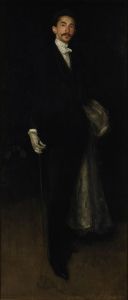6th October 1914
from 9085 Lce Cpl F Crawshaw, 1st Dorset Rgt, 2nd Army Corps, War Office – 6 – 10 – 14
to Miss M Crawshaw, 29 Strathleven Rd, date stamped Army Base Post Office 10 Oc 14 – censor 137
Dear Mabel
Just a few lines to let you know that I have received your welcome letter and also parcel which I was ever so glad to get. I have got a pair of the socks on and they are alright. The cough tablets where just right you couldn’t have done better and also the chic only I would have just have had some Frys plane, but still you done your best and I am more than pleased with you. Have just got a cake from Ciss a seedie, I was surprised I can assure you thank her from me. I am writing to her today.
Heard from old Muff she wrote me a letter from the old people and hopes I am alright and trusts to see me soon, I was surprised to hear from them am dropping them a line or two. You and Aunt are still Tangoing it I would if I was there, I hope you are enjoying yourselves, I expect things are much better for Aunt now that Mattie is knocking at the door good luck to him and I hope he sticks it.
Glad to see you are still busy at Stewarts and still mucking along of Stammering Sam. You know that old saying follow in Fathers footsteps its like old May her mar (Man?) was the same.
I am getting on alright and in the pink, Till I am sorry I am unable to send you any money for sending me the parcels but I will make it up to you later on lets hope so. When you next write Till could you manage to send me two red handkerchiefs as I can’t get any and thats what you need on this gaff I can assure you.
I met the other day a fellow who lives at Brixton as well I knew him when we were kids he is full Corporal and he is the Divisional Post Corporal, we had an interesting chat.
Now I must conclude hoping this letter finds you in the best of health and still merry and bright. Did Uncle Matt get his P card he should have done. I have just heard from Jess, she mentioned that she had heard from you several times and also mentions (C?) Roll on Brixton. Now that all trusting to hear from you soon with love to all from Fruity(?_)
I remain
Your loving Brother
xxxx Bid xAlso in the same envelope – same date etc
Dear Aunt
Just a few lines to thank you and Uncle Matt for the kind thoughts as regards sending me that parcel. I was very pleased to receive it and when I found the B paste I thought I was on Furlough at 29 having a afternoon cup of tea a what. Yes Aunt I am very pleased with you, and I shall never forget it either. I am getting on alright and still mucking in along of the Bhoys
Well how are you all, I am glad to see that you are all in the best of health and now that Wallies is working and Uncle Matt still taking out of the knocker you are getting on alright you deserve a little luck mate if any one does ad I hope Uncle Matt will stick it remember me to Wallie and thank him for his Bovril tell him I hope to be able to ask him what up with his hand shortly.
Have heard from 60 and also had a cake from Ciss not so bad mate. No cold tea out here or little drops of lizzie (?), could do with a drop of cold tea now.
Well thats all this time except I was pleased to get Matties letter it was a good one. Now I think this is all the news this time trusting to hear from you soon Aunt sometimes letter take longer than others you can see that by the date. So it is with fondest love to all from your old mucking in chum
I remain
your loving Nephew
BID
So you get two letters for the price of one today. I’ve broken up the stream of consciousness to make it easier for you to read.
Frank takes advantage of their little break and writes home, happily replete with paste, chocolate and cake. The Brigade had received heavy post the previous day so I suspect Frank is responding to various letters and parcels he received. He was very active in sending letters home.
I am going to split these over the week and discuss their contents in more detail as I did with the last letter.
At 2:45pm their rest came to an end. Orders were received to march to Béthisy-Saint-Pierre, from there they went on to billets in Verberie, four miles on. The Dorsets’ diary complains that the 14th Brigade held them up for three hours during the second stage of the march. They had marched another ten miles to the west.
At 11:30pm they received further orders that they were to entrain at Compiègne, another ten miles to the north, by 7am the following morning.

